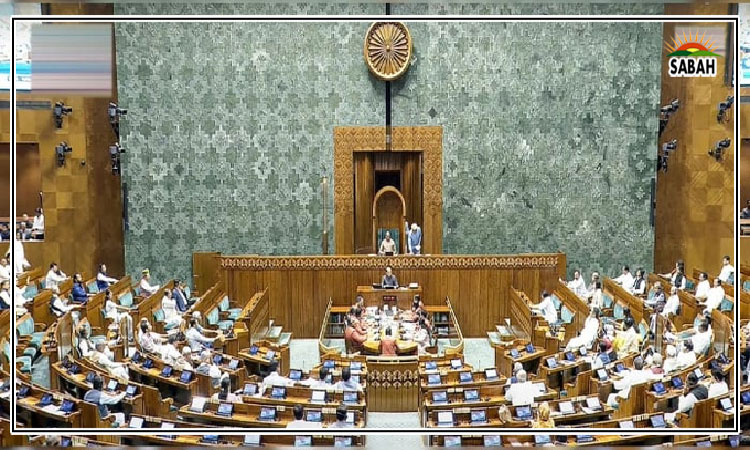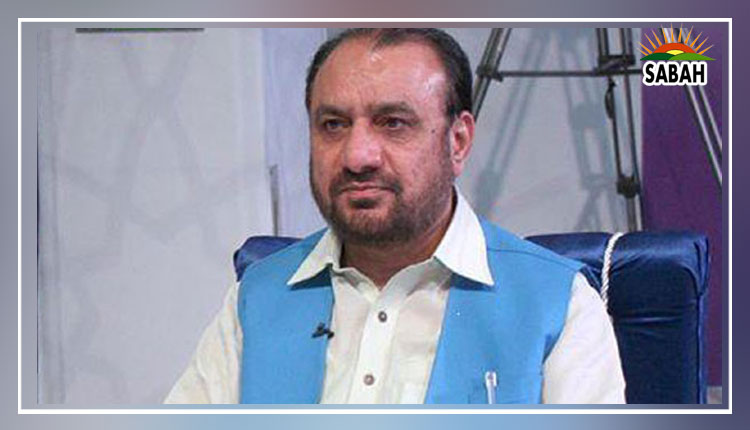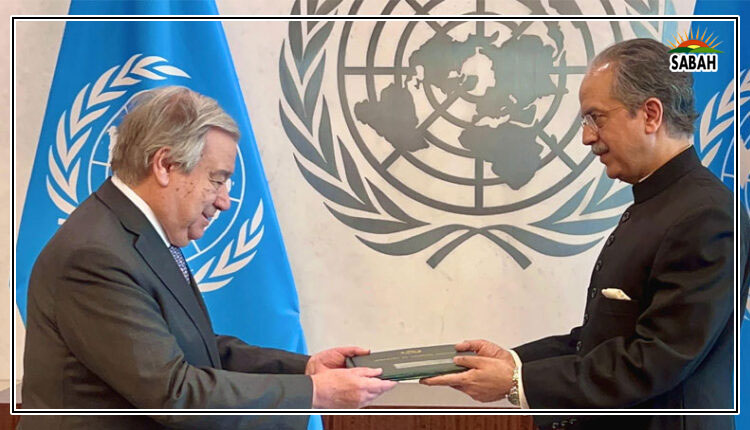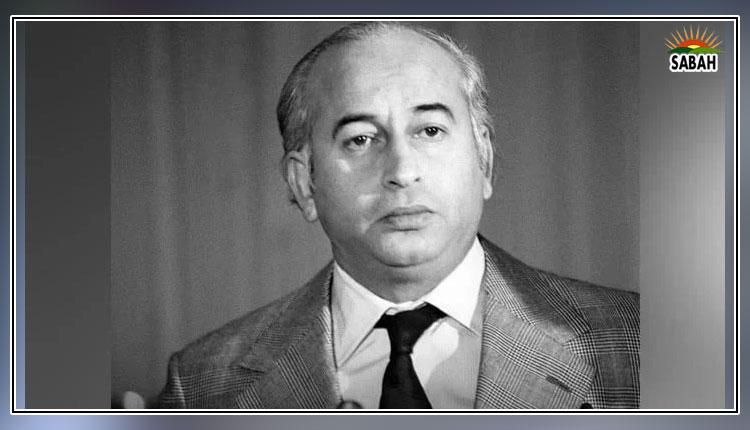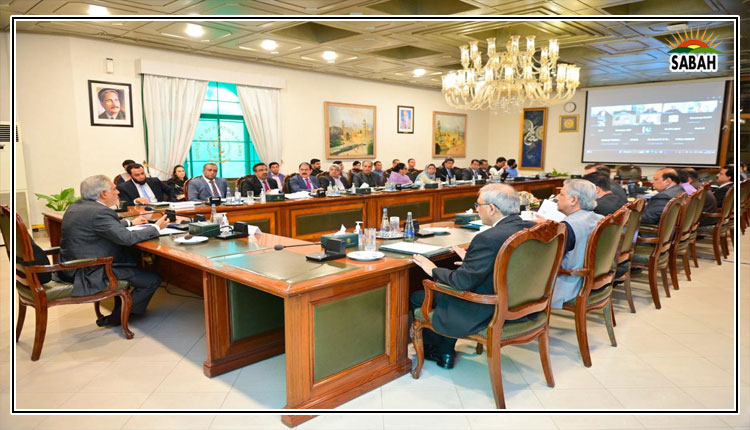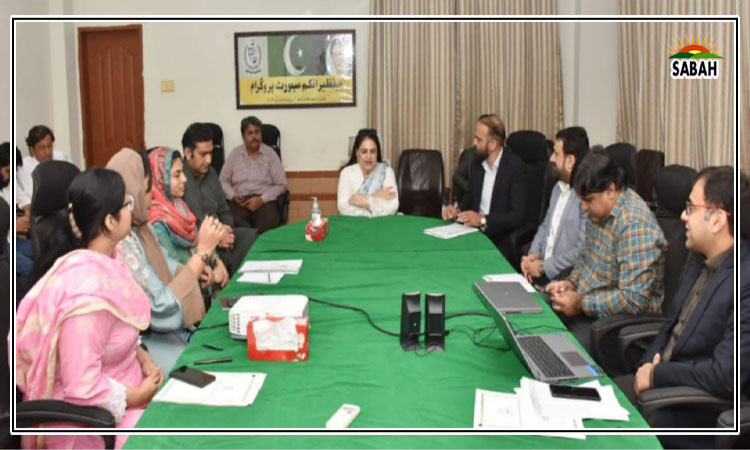Each family counts & human resource development is incumbent upon support from every family: Rubina Khalid
KARACHI, August 21 (SABAH): Chairperson Benazir Income Support Program (BISP) Mrs. Rubina Khalid visited the Office of Director General- Sindh region in Karachi, on Wednesday for a briefing by the regional team of Sindh Region.
Senator Rubina Khalid was briefed through a presentation by the Director General BISP Sindh Region at the Headquarters in Karachi, a detail of the current progress of the region and concurrent programs under BISP were shared with statistical analyses.
Rubina Khalid stated that Human Resource Development is crucial in alleviating the social status of Pakistan’s population as a whole. She also asked the representatives present to devise a plan through which they start a pilot project to enhance handicraft and artisan industry before which they would have to detect and gather individuals with expertise in this field and bring these women on-board. She also spoke to the team to bring fashion design students from known universities Karachi to help assist BISP with this initiative.
“Once these skill based courses are conducted, proper Certification should be done from institutes that are acknowledged internationally and accepted on the global stage,” expressed Mrs. Rubina Khalid.
Director General BISP- Sindh Region presented the achievements of BISP in Sindh. “BISP executed multiple shock responsive cash transfers like covid-19, flood relief 2022, fuel subsidy 2022, flour subsidy 2023, wheat subsidy 2023 and Sindh government Ramzan package 2024 alongside regular tranches,” he listed.
He further mentioned that Digital, Financial and literacy trainings (DFLT) were being conducted to enhance literacy level of beneficiaries on digital and financial aspects.
BISP Central Zonal office Karachi and STEVTA have signed an MoU to enhance the cooperation for serving poor beneficiaries. This will be to ascertain enrolment status of STEVTA Students and in-house excercise.
Chairperson advised the DG to ensure that the working within this MoU is expedited and done within a span of six months, she urged the management of Sindh Region to pay heed to quick delivery of agreed upon terms.
He also stated some other programs namely Benazir Taleem Wazaif and Benazir Nashonuma Facilitation centres that were aimed at educational assistance and healthcare initiatives respectively.
She clarified that there is a lot of misconception about this program, “it is often conflated with social security programs are spread around the globe for people who are unable to support themselves.” BISP is not a social security or a charity program, it’s a program that assists those who are able and willing to work, in some cases already possess the skill and are unable to earn a sustainable income. “Skill development was an aspect that was discontinued previously but it needs to be revived in order to increase the scope of this program.”
She duly expressed that Human Resource development is the main focus for BISP. The overpopulation that is otherwise a burden, needs to be turned to an advantage by teaching skills to individuals to engage them into the workforce. “A meeting with Overseas foundation was conducted to analyse what the international avenues for work are and how they can be used as models for Pakistani workforce,” she added.
“Induction into BISP necessitates a valid CNIC, this condition has enabled a multitude of women of Pakistan an official identity and BISP played an exemplary role in enabling this very basic but extremely crucial right of an individual as part of any society,” the Chairperson remarked as she lauded this move.
She stressed upon the importance of Handicrafts Development and Makerkting. Supporting beneficiaries in producing high-quality, locally made handicrafts by linking beneficiaries to local markets and e-commerce platforms for sales. “A model with Bank Alfala in District Khairpur is an initiative to create a mall and cater to this particular market,” She urged DG BISP Sindh to look into for a possibly pilot program of such nature.
Chairperson Mrs. Rubina Khalid appreciated the work being carried out and expressed that any inadequacies have also been noted. She lauded the team for working despite limited resources and alleviating the plight of those marred with financial duress. “Poverty alleviation demands financial assistance alongside skill based learning which can only be made possible through teaching skills to women who posses the talent, but lack resources and support,” she added as she concluded her visit.
Meanwhile Senator Rubina Khalid called on Dr. Azra Fazal Pechuho at her office in Karachi on Wednesday. Both lawmakers discussed health indicatives going on under their respective organizations to uplift the lives of the people.
Chairperson BISP along with her team, briefed the Minister about various programs especially Benazir NashoNuma program in the domain of health being going on in the province of Sindh. The program aims to prevent malnutrition in Pregnant and Lactating Women (PLW) and Children under two years of age within the BISP Kafaalat Program households. The comprehensive package of interventions is being implemented through “Facilitation centres” established on the premises of Tehsil/Taluka/District level government health facilities (including 35 mobile sites in Sindh).
DG BISP Sindh region also briefed Dr. Azra about the Nashonuma program run by BISP that aims to address stunting among PLW and their children of less than two years of age through the provision of additional cash per PLW child of BISP beneficiary families. In return, mothers are asked to attend regular antenatal health checks and awareness sessions during pregnancy, provided Specialized Nutritious Food (SNF) and RUTF, and taking their children for immunization and regular health checks, he added.
Dr. Azra Pechuho, lauded BISP for their efforts of intervention to prevent stunting in children, improve weight gain of pregnant women, reducing anemia and micronutrient deficiencies and improving awareness of maternal and early child health/nutrition. Owing to her vast experience in health sector, she further guided the Senator and her team to extend such program to Basic Health Units through PPHI and other partnering health organizations. To make this program more focused and beneficial, she offered access to the EPI data and also extended her every possible help and support to the BISP.


